Books of the month: From Be Mine by Richard Ford to I am Homeless If This is Not My Home by Lorrie Moore
Martin Chilton reviews the biggest new books for June in our monthly column

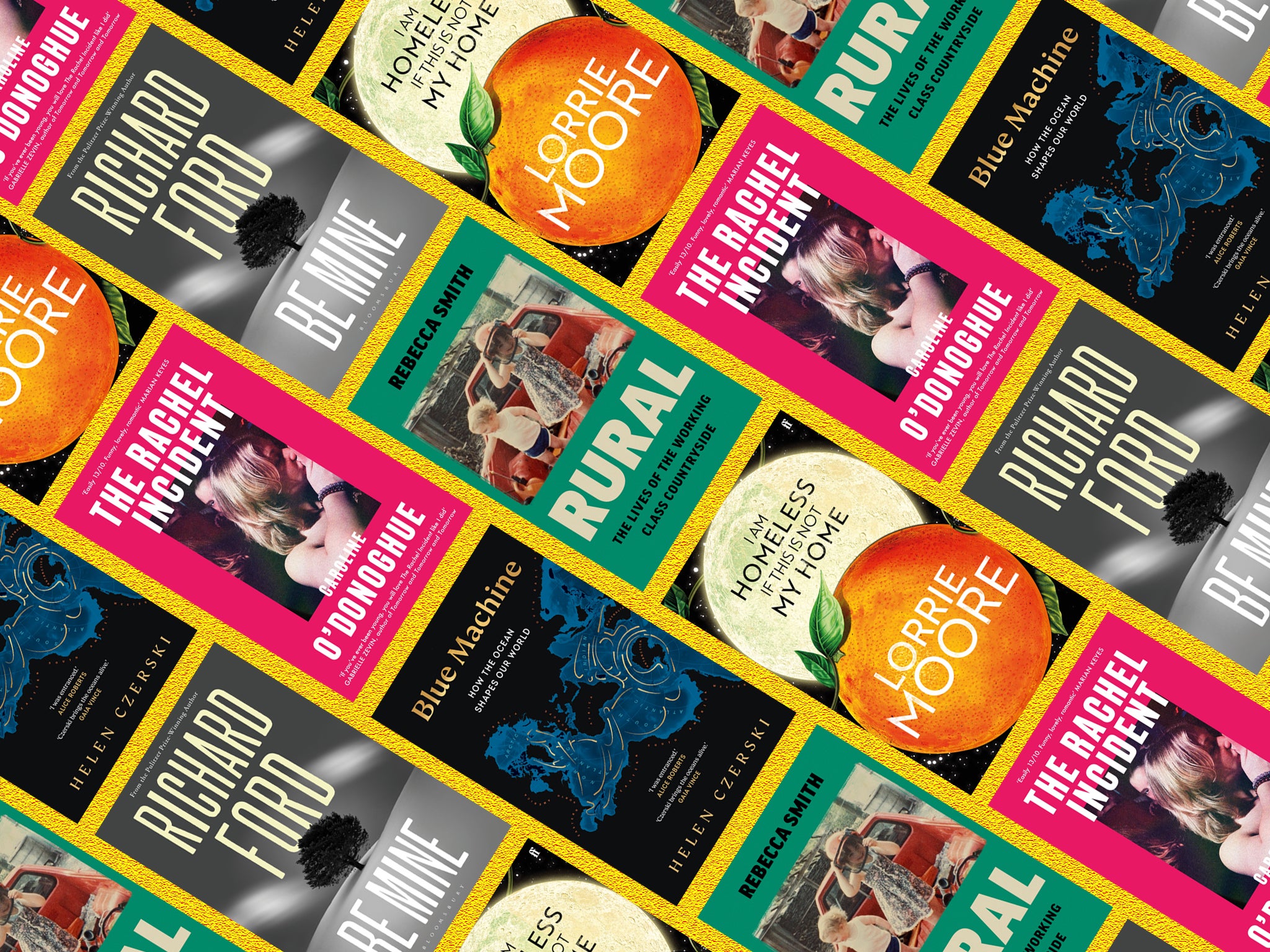
In retirement, General Carl “Tooey” Spatz became “an avid bird watcher”. The career he left behind included his time as head of strategic bombing in the Pacific, supervising the aeroplanes that dropped atomic bombs on Hiroshima and Nagasaki. Unsurprisingly, afterwards, more than birds were on his mind and he admitted he “had trouble sleeping”. Tooey is one of the central figures in Road to Surrender: Three Men and the Countdown to the End of World War II (Elliott &Thompson), Evan Thomas’s engrossing study of one of the darkest moments in human history.
More recently, around one million people have died in battle since 2004, but at least 50 million have perished from infectious diseases. In his impressive yet scary book Fevered Planet: How Diseases Emerge When We Harm Nature (Bloomsbury), environmental journalist John Vidal makes a compelling case for humanity to transform its relationship with the natural world.
One of the most chilling chapters is “City Ills”, about how fast-growing cities will shape the world’s health. In 1993, Dhaka was a city of 250,000 people. By 2033, Bangladesh’s capital is expected to have 23 million people, half of them living in dangerous, slum conditions. Vidal says it looks likely to be the world capital of global disease. And, as we know from Covid, it can be a perilously small world when things go wrong.
If you are a fan of crime thrillers, then I can recommend The Quiet Tenant (Abacus) by Clémence Michallon. The story of a male serial killer called Aidan Thomas is told from multiple perspectives, in a way that centres the female voices of his victims. It’s a pacy thriller and a sharp study of survival from The Independent’s senior people writer.
Finally, for those readers nostalgic for old-style football yarns, Hammer Time (Headline) by Julian Dicks is full of punchy, earthy and sometimes downright disgusting tales of life as a player for West Ham, Liverpool and junior England teams. Dicks, a cult figure for the Hammers, has some entertaining stories about Paul Gascoigne – one about toothpaste is the most typically “Gazza” – that capture football in an era long before sanitised PR and Instagram self-promotion.
When Dicks, whose pre-match meal was always a Mars bar and a can of coke, met the diminutive new West Ham manager Lou Macari, the defender was greeted with the words, “you’re quite fat”.
Dicks replied: “And you’re a f***ing midget.”
Can’t quite imagine that Pep has that sort of interaction with new signings at Man City, can you?
Novels by Lorrie Moore, Richard Ford and Caroline O’Donoghue, along with a book on rural life by Rebecca Smith and a study of the Ocean by Helen Czerski, are reviewed in full below.
Blue Machine: How the Ocean Shapes Our World by Helen Czerski ★★★★☆
The vile decision by Conservative MPs earlier this year to allow water companies to continue dumping sewage into our rivers and seas for another 15 years was presumably part of their attempt to restore Victorian values. In the 19th century, notes Helen Czerski in Blue Machine: How the Ocean Shapes Our World, sludge boats designed to take away London’s untreated waste simply dumped s*** straight into the Thames. The transporting vessels were wittily dubbed “the Bovril boats” (younger readers please note that they were named after a rather grim dark brown meat extract drink that was popular in bygone days) and the cynicism of present-day Tory politicians seems to fit in with the harmful thinking that the ocean is merely “the end of a one-way pipe”, in Czerski’s words.
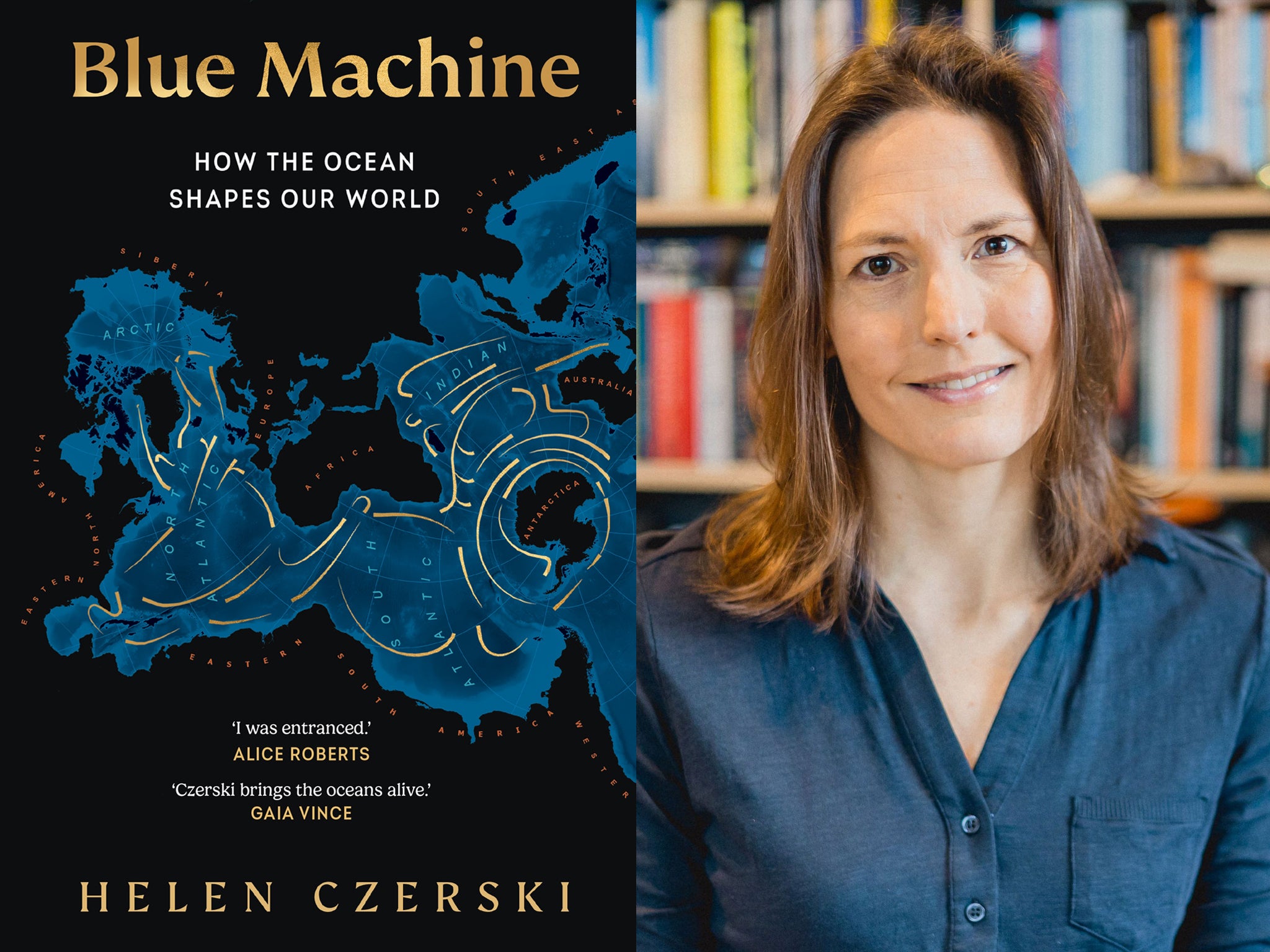
If you want to understand the whole glorious ecosystem and connectivity of our globe’s waters then Blue Machine offers a riveting explanation of the ocean, “the big beast in Earth’s planetary system”, as Czerski, an associate professor in the Department of Mechanical Engineering at University College London, puts it. The book simply immerses you. It is full of interesting analysis that is comprehensible to a non-science brain like mine, written in an accessible style that transmits the excitement of being a deep-sea biologist and the joy of an ocean that is beautiful and gigantic and never, ever still.
The book shoots off at fascinating tangents, including those about what human behaviour does to the stress levels of cortisol on the ear wax of a whale; why blood looks green when you sink below 10 metres and what the density layers of the ocean mean for the world. Of course, the book ponders on the damage that pollutants and climate change are wreaking on the ocean. In the section on the problems of chlorofluorocarbons, Czerski also details the demise of CFC inventor Thomas Midgley in 1944, a grisly fate that will satisfy anyone who wants to believe in karmic justice.
Blue Machine is a spectacular read and among the many memorable passages is one about the leatherback turtle, which must weep as she eats. “A proportion of her head is taken up with salt glands, organs that remove salt and push it out of her tear ducts. Leatherback tears are thick and viscous and almost twice as salty as the ocean. To keep eating without killing herself with salt, the turtle must cry around nine litres of tears every hour.” Wow, cry me a river indeed.
‘Blue Machine: How the Ocean Shapes Our World’ by Helen Czerski is published by Torva on 1 June, £20
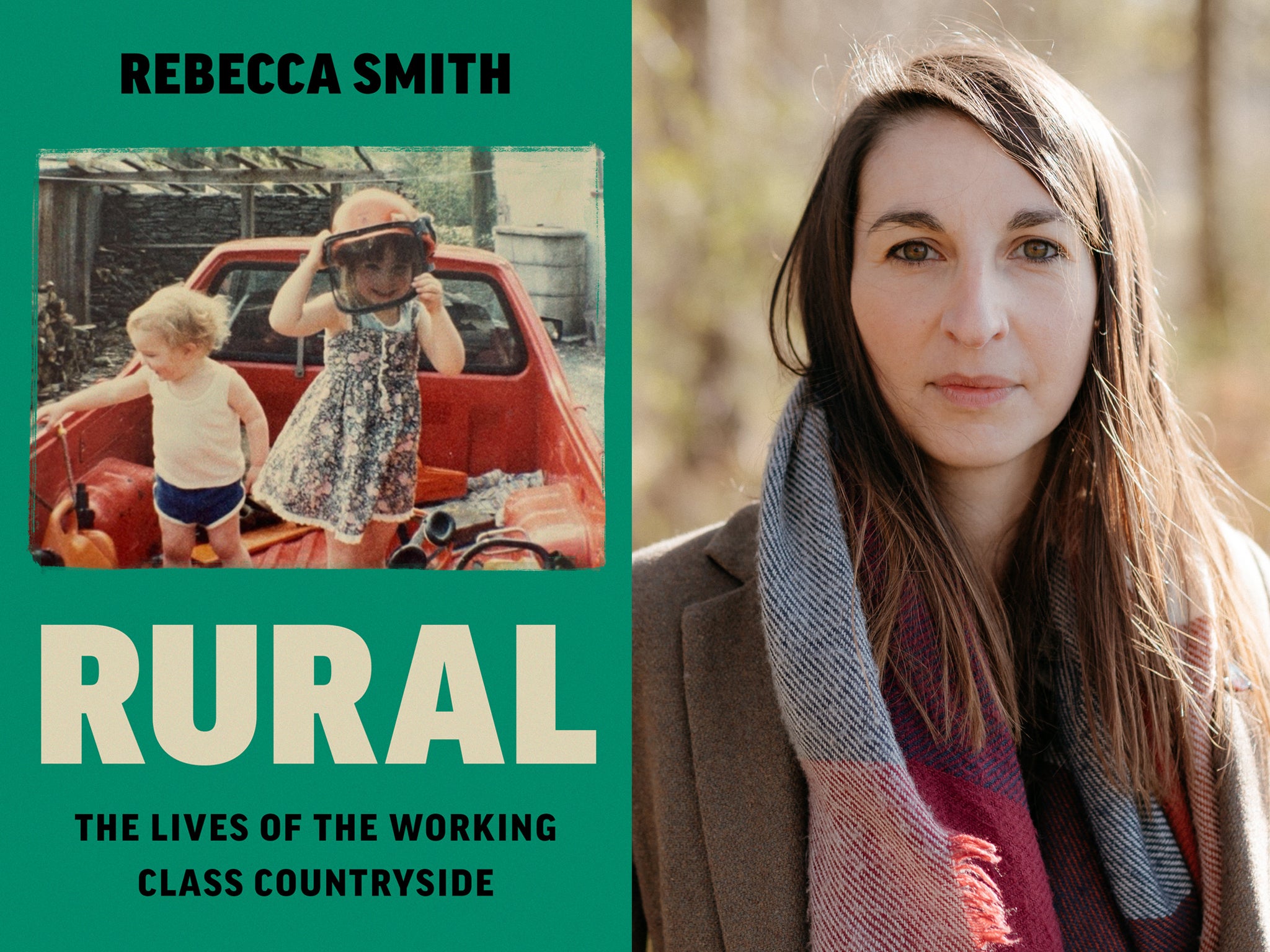
Rural: The Lives of the Working Class Countryside by Rebecca Smith ★★★★☆
“I am tired of reading a tourist’s view of the countryside,” writes former BBC producer Rebecca Smith in a pointed passage in the prologue to her intelligent, multifaceted exploration of working-class life in the British countryside.
Smith, who deals with her own family history, including miners in Derbyshire and foresters in Cumbria, divides the book into chapters on land, wood, coal, water, food, slate, textiles, tourism, development, business and land, in a well-researched book that neatly blends memoir, history, nature writing and a socio-political perspective on rural life.
In Rural: The Lives of the Working Class Countryside, she raises pertinent questions about burning issues such as the lack of decent and affordable housing in the countryside and I was particularly struck by a section on how the combined efforts of Airbnb and second-homers have “gradually suffocated” the life and fabric out of some rural areas. It is to Smith’s huge credit that she achieves her aim with the book, of revealing parts of society that are too often simply forgotten.
‘Rural: The Lives of the Working Class Countryside’ by Rebecca Smith is published by William Collins on 8 June, £18.99
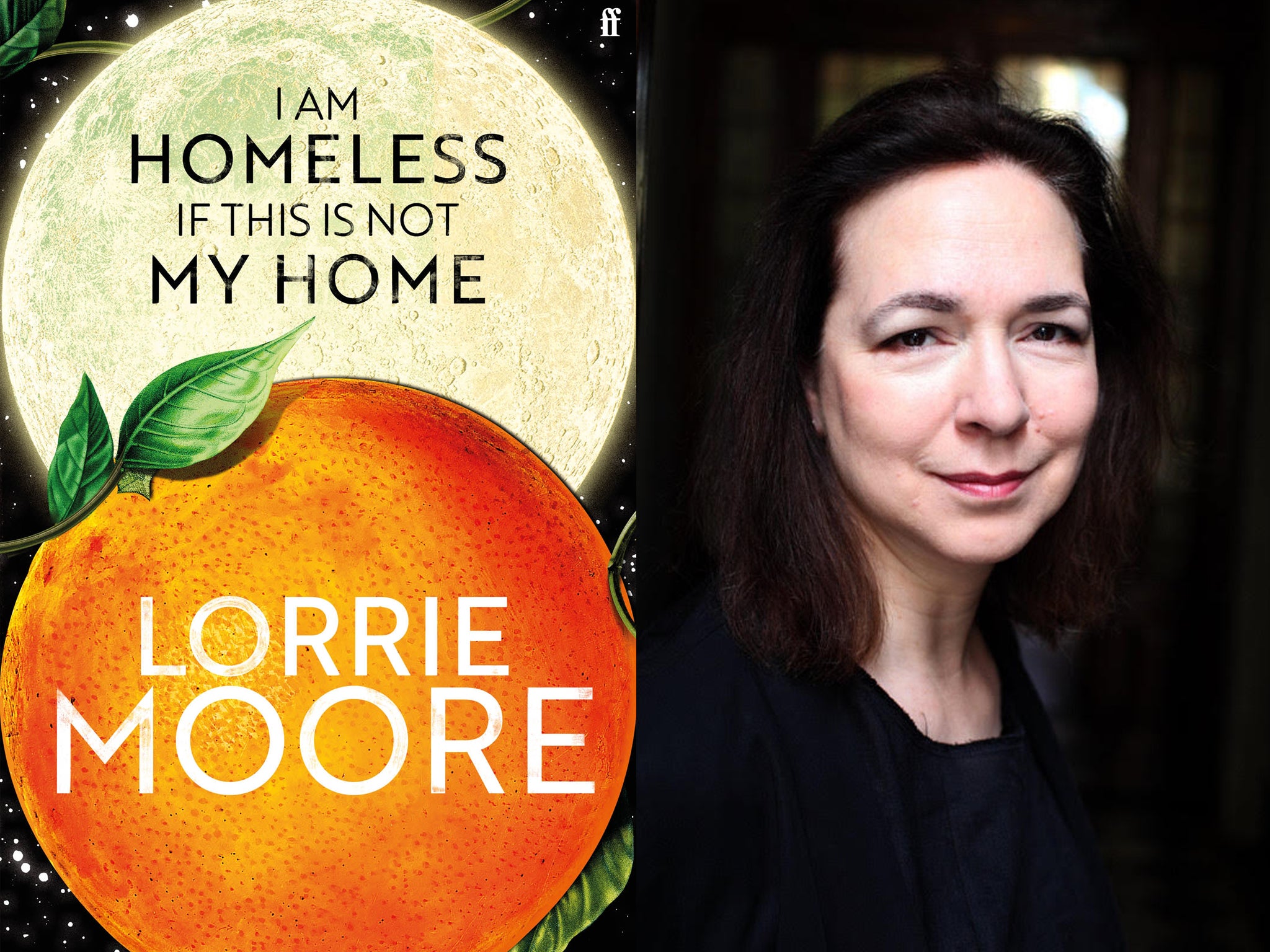
I am Homeless If This is Not My Home by Lorrie Moore ★★★★★
When Finn, the despondent middle-aged teacher who is the protagonist of I am Homeless If This is Not My Home, contemplates “other couples” he thinks of them as having grown wearily accustomed to each other. “They had cooked each other. Each was the frog and each was the heated water,” writes Lorrie Moore. It is a typically imaginative and original turn of phrase from Moore, in her first novel since 2009’s Women’s Prize-shortlisted A Gate at the Stairs.
After visiting his dying brother Max in a New York hospice (and encouraging him to watch the World Series on the basis that “the nonsense of sports was preferable to most other nonsense”), Finn is called back to deal with the tragic death of his former lover Lily. What happens next is described by the publishers as a strange journey that “opens up a trap door in reality”. They are underselling what becomes, in Moore’s talented hands, a truly startling black comedy road trip, with a “death-adjacent” spectre who describes herself as “a casserole of rot”. The description of Finn lovingly bathing the rotting corpse of his ghostly lover (“he sudsed the odor of fish and cheese off her”) is as gruesome as it is spine-tinglingly repulsive. Yet, underneath the skin, so to speak, is the bones of a remarkable exploration of memory, unbreakable desire and regret and how the afterlife overlays life in places.
The novel includes historical flashbacks – bleak letters to a sister from a Civil War-era woman “braced at every turn for disenchantment” – and reflections on everything from mobile phone obsession to the mentality of a school shooting generation, all in Moore’s gorgeous prose. There are sizzling similes (“her illness had lived in her like an exotic poisonous pet”) and rich, clever, dense sentences replete with surprising twists and punchlines. And Moore’s sharp wit underpins everything. Even the names of the ginger cats are funny: ‘Red’ and ‘Less Red’.
I am Homeless If This is Not My Home explores death, grief and the past in a way that is full of wisdom and empathy. I enjoyed so many moments in this novel, including the intimate and moving description of Finn’s encounter with a toilet salesman. As with all the best fiction, Moore offers a way of looking at the world that brings a fresh perspective on something well worn, as when Finn looks at old images of himself and Lily. “The photos of them together – smiling, entwined, behatted, insouciant – were like all photos: weak lies at the time but full of truth and power later on. A weird form of time travel,” writes Moore.
This is a time trip well worth taking.
‘I am Homeless If This is Not My Home’ by Lorrie Moore is published by Faber on 20 June, £16.99
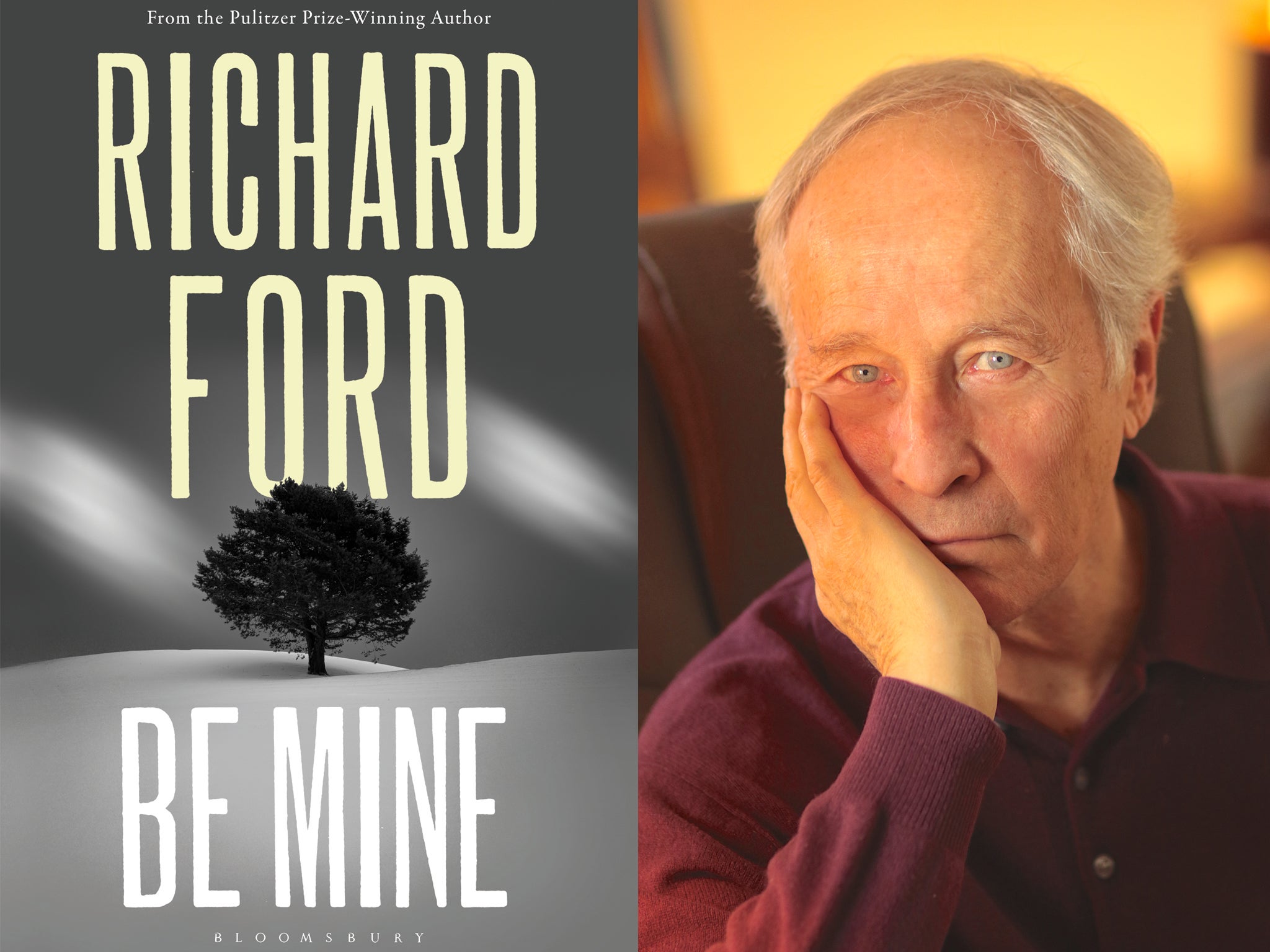
Be Mine by Richard Ford ★★★★★
Richard Ford’s Frank Bascombe series – The Sportswriter, the Pulitzer-winning Independence Day, The Lay of the Land and Let Me Be Frank With You – stand as one of the finest achievements of modern American fiction. Frank’s story comes to a fittingly mordant and brilliant conclusion in Be Mine.
The novel, set just pre-pandemic in February 2020, when Frank is in his mid-seventies, is about finality and a last grab at happiness, as he takes his son, who is dying from ALS (Lou Gehrig’s disease), on a Valentine’s Day trip to Mount Rushmore. “He’s impaired and I am his minder,” says Frank, who is struggling with the situation of a loved one who is experiencing more than he can help with. Paul, now 47, is grumpy, awkward, weird and witty, and their father-son discourse can sometimes make you wince.
Although the subject matter is grim, Ford casts his usual incisively cold and funny eye on affairs of the heart. There is also plenty of humour in his depictions of people – porky policemen, the sort of “assholes” who wear mirrored sun-shades around their hat crowns, the “pooch-lipped” Donald Trump – alongside the situational comedy of life on the road and the interactions with modern-day health care personnel.
Be Mine is an intensely affecting novel. Frank has had plenty of tragedy in his story and some of the most affecting moments in this novel are when Frank, in his mind’s eye, recalls his suffering middle-aged son as a child. The most heart-breaking vision is that of six-year-old Paul struggling to cope with the loss of his brother Ralph, who died, aged nine, in 1979, an event that sparked Frank’s existential crisis in The Sportswriter. Paul, we are reminded in a deliberate call-back, used to keep pigeons in a coop and send them off each night in the hopes of getting messages to his dead brother. Gulp.
There are hard lessons in the novel (and the series) about the inevitable “fatherly defeat of everything you do”. And surely every reader will have to answer for themselves Frank’s question, “can grief be defeated?”
“We can look too closely at life,” says the septuagenarian protagonist/narrator, a suitably skilful shimmy from Ford, whose final Frank Bascombe novel examines life with a magnificently deft and sharp lens. Despite all the sorrow, Be Mine is a joyful reminder that close attention to lived life is both renewing and affirming.
‘Be Mine’ by Richard Ford is published by Bloomsbury on 22 June, £18.99

The Rachel Incident by Caroline O’Donoghue ★★★☆☆
There are plenty of droll jokes in Caroline O’Donoghue’s novel The Rachel Incident, especially about the publishing industry, bookshop work and the problems of finding a job when you have done an English degree (“That’s how it is with the Arts. People love it for the variety but can’t handle the droopy uselessness of it,” quips protagonist Rachel).
Rachel, whose friendship with her Cork flatmate James is at the core of the novel, becomes notorious for an “incident” after developing a crush on a married professor called Dr Byrne. All is not what it seems, though, and the complicated romantic shenanigans allow O’Donoghue, host of the Sentimental Garbage podcast, to examine themes of sexual identity denial, young love, passion and hypocrisy.
I enjoyed some of the humour and the author lands neat jabs with lines about how everyone in publishing has worked at a Waterstones, the sneaky tricks of authors leaving booksellers with non-returnable signed copies and the draining nature of dealing with turgid customers. “We developed a deep hatred of women who bought The Help to read on holiday,” Rachel remarks. There is also a lot of humour around the sex lives of twentysomethings. Rachel is damning about young men and their unimpressive skills at oral sex: “most sucker on to your clitoris like a fish at the side of a tank,” she remarks.
Overall, the novel, which is mainly set in 2010, has engaging central characters and relevant things to say about ghosting, student dog years, reproductive healthcare and the destructiveness of small-town gossip.
‘The Rachel Incident’ by Caroline O’Donoghue is published by Virago on 22 June, £16.99






Join our commenting forum
Join thought-provoking conversations, follow other Independent readers and see their replies
Comments